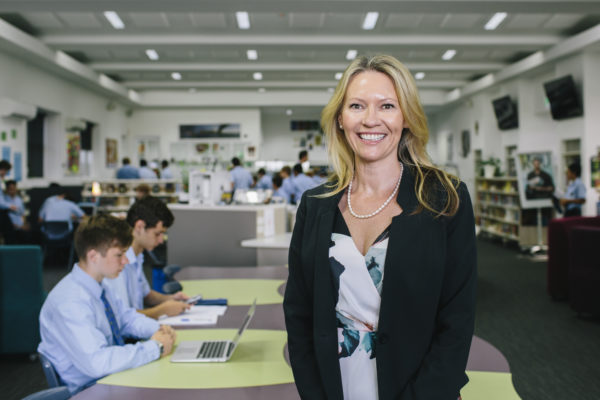
Deputy Principal - Teaching & Learning, Ms Elizabeth Watson
Report on the EREA National Learning and Wellbeing Conference
Last week, the Leaders of Learning and Wellbeing across the 55 EREA Colleges and Flexible Learning Schools came together in Melbourne for the launch of the EREA Learning Statement: Implementing Liberating Practice to Co-create a Better World.
I was joined by Ms Lynsey Porter (Director of Curriculum) and Ms Rebecca Gair (Head of Quinn House) for this special occasion. It was wonderful to collaborate with our colleagues from across the network to workshop the Learning Statement and also learn about pedagogical and wellbeing initiatives underway in our other schools. It was rewarding to see how well the Waverley College Learning Framework aligns to the Learning Statement.
The EREA Learning Statement respects and honours the unique stories and celebrates the diversity of individuals and learning communities within EREA. These learning communities are inclusive of Indigenous, early learning, primary and secondary, boarding, all-boys and co-educational schools; diverse needs and flexible learning schools; inner-city, urban, rural and remote schools.
The statement has been a pivotal strategic action for EREA, giving life and language to our vision for learning. It sources its inspiration and structure from four liberating educators and practitioners: Jesus of Nazareth, Edmund Rice, Paulo Freire and Miriam-Rose Ungunmerr-Baumann.
Faithful to his tradition, Jesus of Nazareth interacted with a range of diverse learners in a variety of contexts. He challenged structures in the way in which he created learning opportunities which recognised the dignity of each person and connected with the lived experiences of each one.
Edmund Rice challenged political and social structures by providing an education which recognised the dignity, potential and wellbeing of the individual, empowering each learner to participate more fully in society.
In articulating a Pedagogy of the Oppressed, Paulo Freire proposed that dialogue, partnership and engagement, within the learning context, created an atmosphere of hope, love, humility and trust. This approach is key to individual learners being equipped to critique their own lives and, in collaboration with others, to experience mutual liberation.
Miriam-Rose Ungunmerr-Baumann addresses the importance of cultural awareness and sensitivity to ensure that Aboriginal and Torres Strait Islander Peoples have a voice in the sharing of knowledge. Her concept of Dadirri, a way of life emphasising deep listening, provides an ancient insight into contemporary, transformative educational practice.
EREA commits to implementing liberating practices to build a better world by ‘explicitly co-creating the learning conditions, dispositions and relationships to enable deep listening, confidence, agency and freedom.’
This dynamic intent and these actions are articulated through six practices which in themselves require our ongoing engagement, but also inform and have an impact on the other within a learning community.
Liberating Pedagogies
Within safe and flexible learning places, supported by positive relationships, the learner is free to participate in and lead experiences grounded in collaborative processes, critical thinking and creative problem solving.
Liberating Achievement
When excellence and improvement are viewed in a variety of ways and evidence of success is gathered, interpreted, and celebrated holistically, the learner is free to pursue a strengths-based learning pathway informed by high expectations and personal ambitions.
Liberating Voice and Agency
When individual voice is deeply listened to, respected, and included in decision-making processes, the learner is free to develop the confidence, resilience, optimism and agency to fully determine their learning aspirations.

Liberating Potential
When learning experiences are informed by each person’s story, strengths and passions, the learner is free to contribute to and participate in challenging, individualised learning plans that orient their goals towards personal growth.
Liberating Learning Design
Where schools design and develop innovative learning environments, whether physical and/or virtual, the learner is free to access and engage in multiple pathways and contribute to a dynamic, connected educational community.
Liberating Spiritualities
In exploring meaning and purpose in life, the learner is free to grow in their understanding of themselves, and their relatedness with God, others, Earth and creation, through experiences grounded in wonder, awe, contemplation, and action for justice and the common good.
>>> Click here to view the full document.
Ms Elizabeth Watson
Deputy Principal – Teaching and Learning
E: ewatson@waverley.nsw.edu.au



